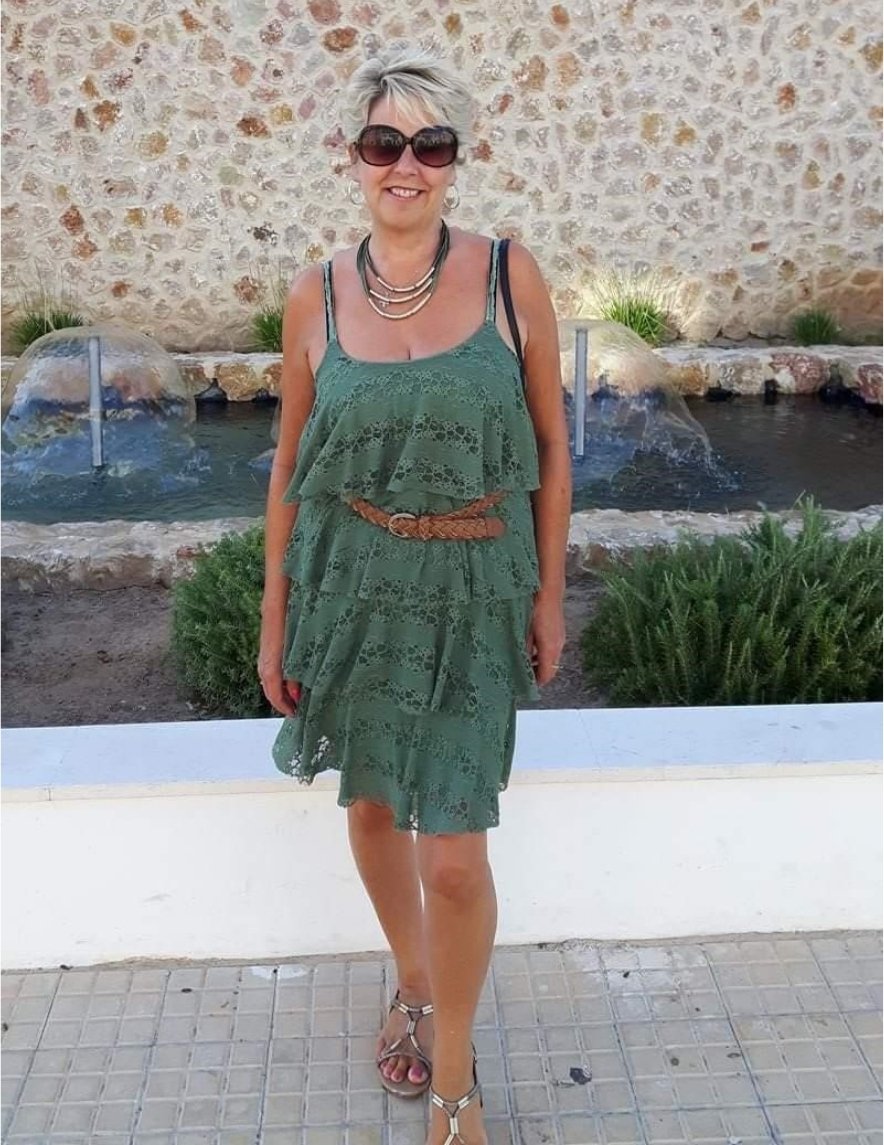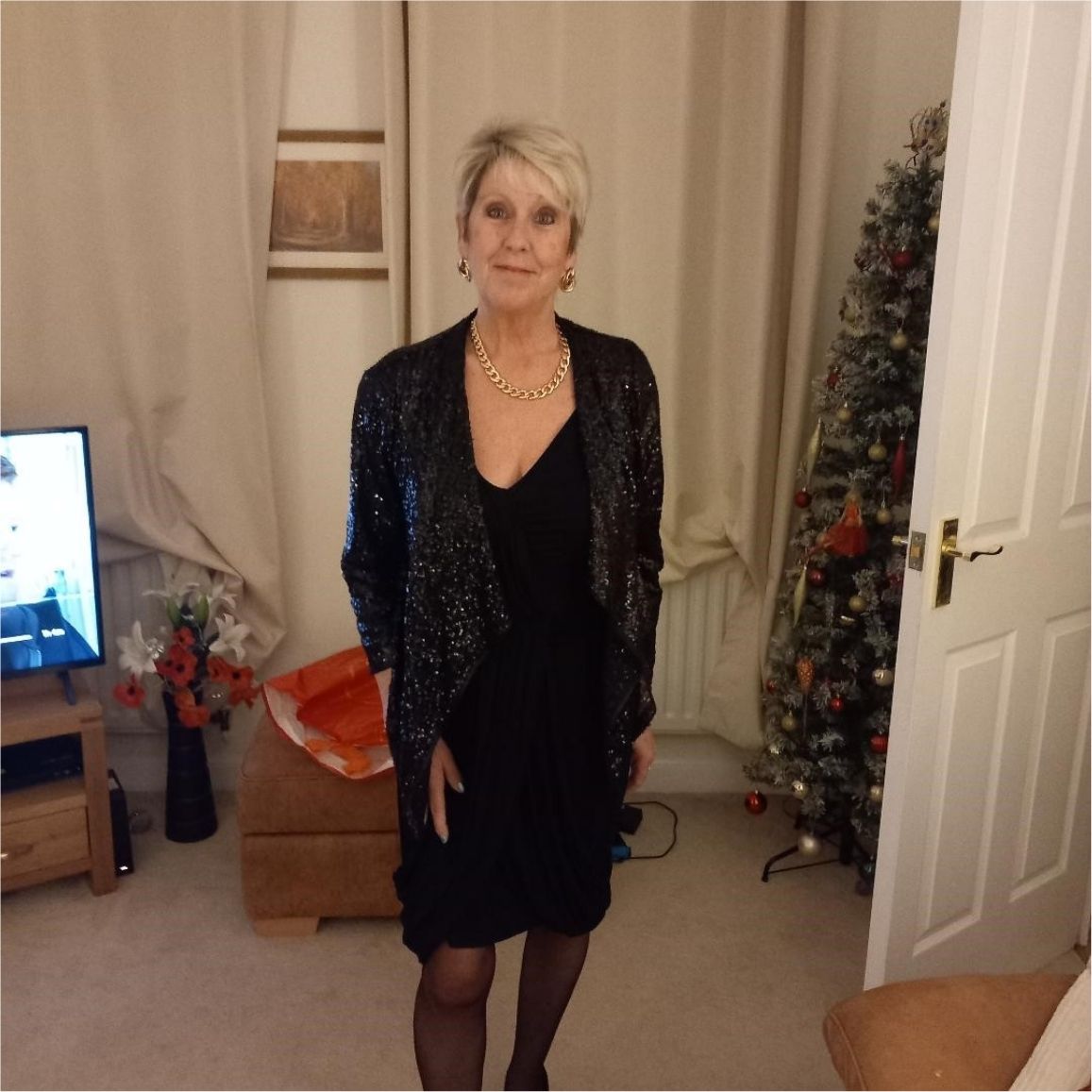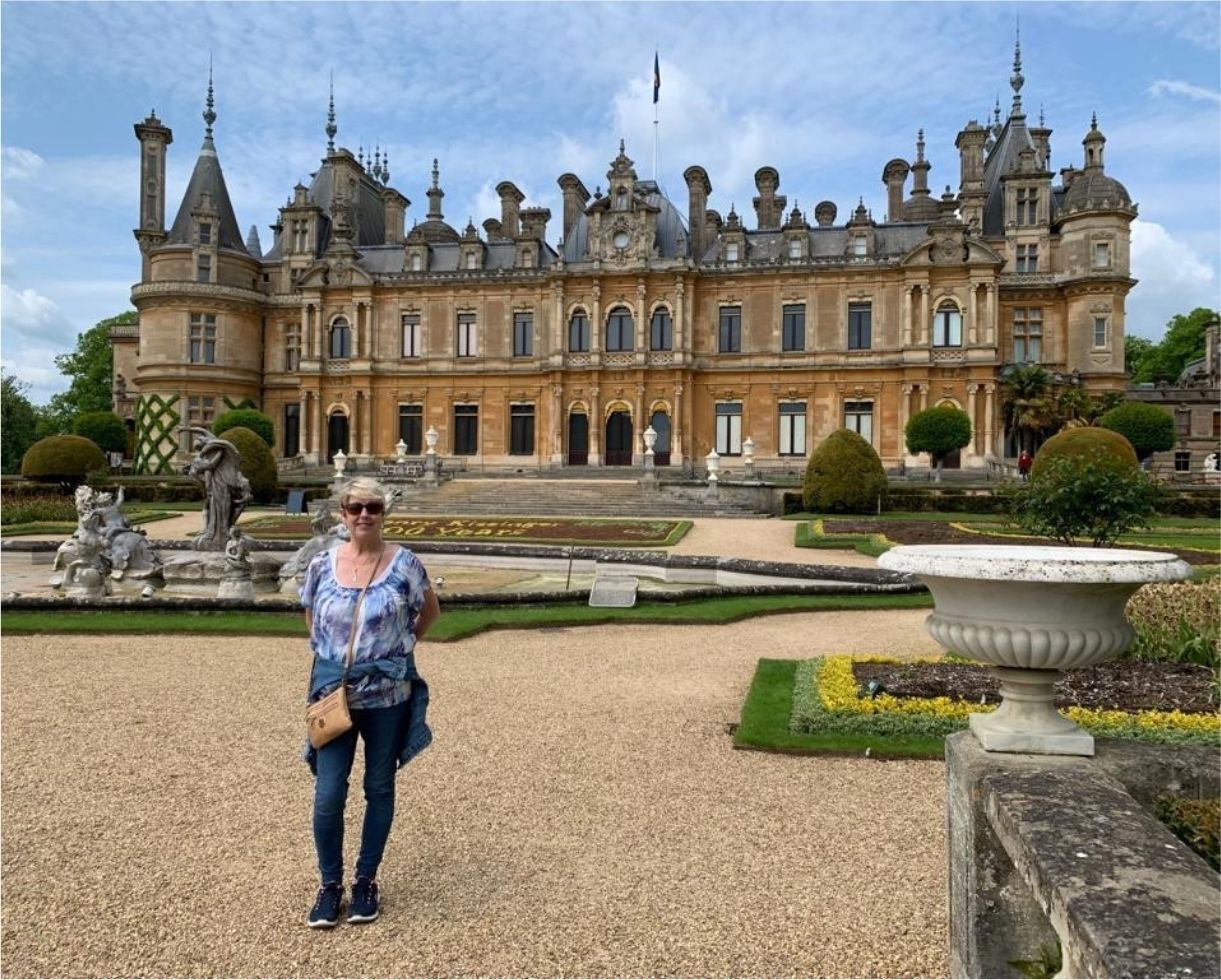Karen was diagnosed with dilated cardiomyopathy (DCM) in 1995 at the age of 33, as a result of a heart attack that went untreated several months before. Karen has shared her cardiomyopathy journey with us to help raise awareness of the condition.
The diagnosis
A few months before my diagnosis I was experiencing chest pains, which continued until one evening I couldn’t breathe. It felt like someone was stopping me from breathing and I had pains down my neck. I was 33 with a young baby, and this was during a time when you could call out the GP out of hours. When my GP arrived, my symptoms had slowed, and despite me telling her something was wrong with my heart, she told me I was too young for it to be heart-related and advised me to come into the surgery the following day.
Over the next three months, I continued having chest pains and in June 1995 I was finally given an outpatient appointment after being diagnosed with an overactive thyroid. I went to the hospital to have some tests for this, and one of the tests was an ECG (electrocardiogram). No one said anything at the time of the test, but I then received a letter in the post referring me to a cardiologist which was a shock as nobody had mentioned anything to me about my heart.

At my appointment, the doctor told me I had had a heart attack (this was caused by my overactive thyroid which can occur after childbirth), and I was now in heart failure. Due to no medical intervention during this time, I had developed DCM. At this stage, I wasn’t offered any medications or further tests. When I asked about this, I was told the damage is done now, and I should go home and look after my baby.
I continued having chest pains which resulted in me being hospitalised. The nursing team advised me to request to be transferred to John Radcliffe Hospital, as this was a heart hospital and I needed further tests and treatment. When I arrived at John Radcliffe I was given much more support. I was put on an ace inhibitor but was told nothing further was required and then they sent me home.
The emotional impact of cardiomyopathy
I was devastated when I received my diagnosis. I was 33 years old with an 11-month-old baby, I wasn’t given any further information about my condition, and I remember thinking this meant I was going to die.

Before being diagnosed with a heart condition I thought it was something older people had, people who struggled to walk, breathe or do things. My opinions have changed massively over the last 29 years. I realise now that I am living with a heart condition, not dying from it – it is a big difference.
Following my diagnosis, I was left unsure of what the future might hold. I was told by the doctors they couldn’t guarantee that I would survive the next 12 months, so I decided to focus on making memories with my son, rather than worrying about trivial things like the house being messy. I was told I wouldn’t be able to have any more children, but I still felt lucky that I was able to have my son. I am delighted to say my son turns 30 this year, I am 62 and have defied all predictions.
Living with cardiomyopathy
I spent a number of years getting back to good fitness levels, and treating my thyroid so it would no longer affect my heart. Unfortunately, in the years to follow, my marriage broke down, partly due to the stress of my condition, I brought up my son on my own whilst working in sales roles. I had a successful career in sales (I never told my employers about my heart), however as I turned 50, I started to feel tired and realised that working in high-pressure sales jobs was negatively affecting my heart.
I then worked in less pressured job roles, but in 2017 my heart condition worsened, and it was decided that I should have a CRTD device fitted to help my heart. As soon as I woke from the operation I felt better! My irregular heartbeat was a thing of the past, and a year later at my outpatient check up my EFR had gone from 33 to 42!
More recently I stopped working on the advice of my clinician, which has made a big difference. I feel much healthier, happier and less stressed. I did try working part-time, which I found to be just as stressful; in my experience they seem to expect the same amount of work from you but in a shorter timeframe. Since giving up work I feel better able to cope with day-to-day life and doing things at my own pace. I have lots of hobbies, including pottery, my book club, the theatre, the cinema and spending time with friends. Most importantly I have plenty of social interaction and fill my life doing things that I find fun.

I have accepted my condition, I now have my CRTD device, (which I have named Frankie… my new best friend) and I am asymptomatic most of the time. If I exert myself too much, I can get breathless and dizzy, so I now listen to my body and I know my limitations. I plan my days so that I try not to bring on any symptoms, I walk for two miles four to five times a week, which is fine for me, so I have found my happy place.
I have had an emotional ride over the years, and I think it’s important for healthcare professionals to talk to us about what things mean, so that we don’t go thinking the worst. It’s great to have charities like Cardiomyopathy UK that we can call on to give us further advice and help. It has definitely improved over the years, but I wish there was more from the NHS to help us digest and understand our conditions so that we can live our best lives. It’s been 29 years since my cardiomyopathy diagnosis, I feel very lucky that I have lived the last 29 years in the moment, and I have had the absolute joy of bringing up my son.
Since I discovered Cardiomyopathy UK I have found a really lovely community in the coffee and catch-up group. It is a lovely informal group, and everyone has been so welcoming. I love that we can be chatting about some of the crazy things in relation to our hearts one minute, and something completely random the next! And we do laugh a lot!
It’s great to be able to join a group like this as well as the condition-specific groups where we can have more in-depth chats about medical-related things. It’s been lovely to be able to give my own guidance to people who have recently been diagnosed and hopefully provide some hope and reassurance, I just wish something like this was available 29 years ago.
We hold a variety of support group meetings each month both in-person and online, including our weekly coffee and catch-up sessions. Follow the link below to learn more: